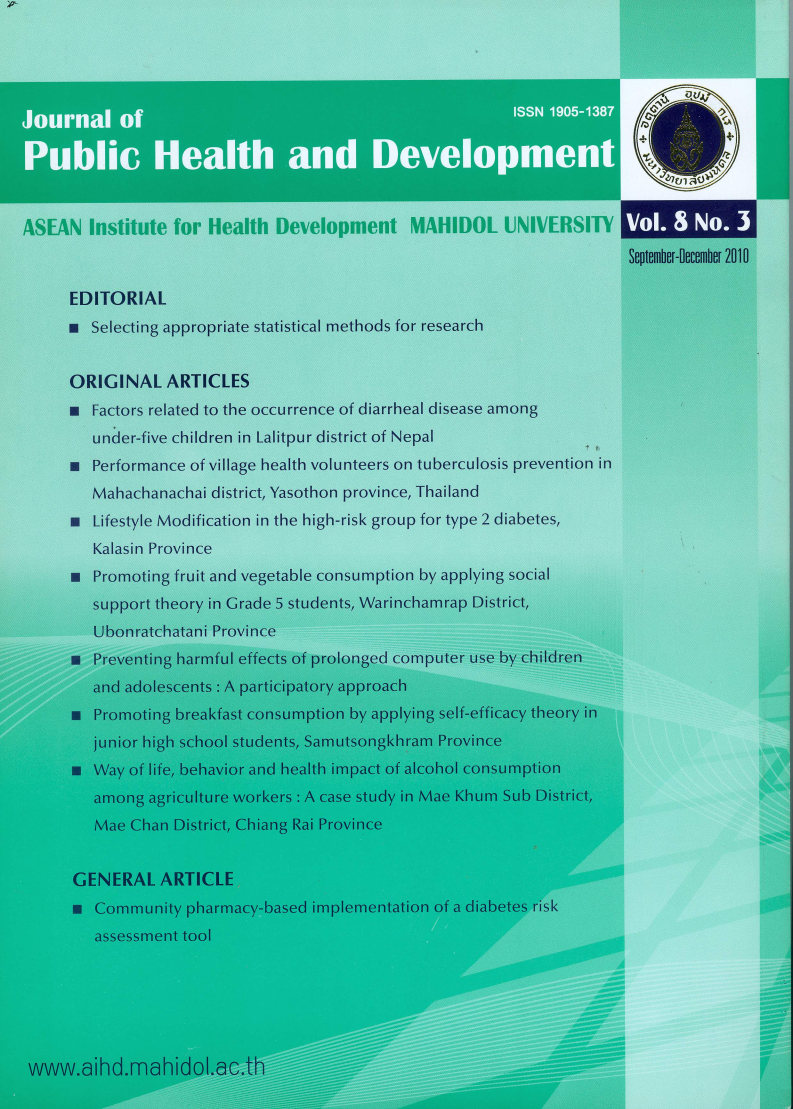Factors related to the occurrence of diarrheal disease among under-five children in Lalitpur district of Nepal
Main Article Content
Abstract
A cross-sectional descriptive study was conducted to identify the factors (socio-demographic, behavioral, child, environmental and sanitation) related to the occurrence of diarrheal disease in under-five pre-school children in the Lalitpur district of Nepal. Data of 179 caregivers of the under-five children were collected from two urban schools, during the winter season (Jan-Feb, 2010) where the incidence of diarrhea was high. Data were collected by structured questionnaire and face to face interviews in both schools. Chi-square test and Multiple Logistic Regression were used to identify factors related to the occurrence of diarrheal disease.
Caregivers were mostly female (78.77%), and 72.63% were mothers. 46.93% had secondary education or higher, and 39.11% were of low family income. More than half had a fair level of knowledge. 49.16% had good diarrhea practice, and 88% believed that first teeth emergence can cause diarrhea. Most of their children were 37- 48 months old. 82.68% had normal birth weight, and 46.93% had exclusive breastfeeding.
Most caregivers reported no diarrhea in their children in the month prior to the day of the interview, 20.67% reported one episode, and only
0.56% reported two episodes. 86.84% had watery type of diarrhea. Diarrhea occurred more often in children of ≥ 30 years old female caregivers with primary education and having poor practice on diarrhea. Diarrhea also occurred more often in children with low birth weight and not exclusively breastfed. However, there was no statistically significant association. Two factors were statistically significant associated with the occurrence of diarrheal disease: unhygienic drinking water storage system (O.R.= 2.53, 95% CI = 1.12 - 5.73) and unhygienic drainage system by having blocked drainage near by around the house, (O.R. = 2.12, 95% CI = 1.02 - 4.41). Clean storage of drinking water and hygienic drainage system should be encouraged. A good sewerage system may be expected to have a long term impact in the prevention of diarrhea.


